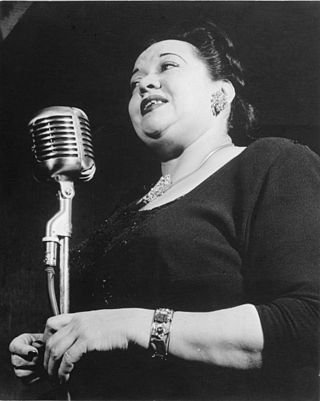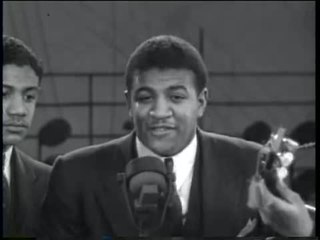Related Research Articles

Hoagland Howard Carmichael was an American musician, composer, songwriter, actor and lawyer. Carmichael was one of the most successful Tin Pan Alley songwriters of the 1930s, and was among the first singer-songwriters in the age of mass media to utilize new communication technologies such as television, microphones, and sound recordings.

"Stardust" is a 1927 song composed by Hoagy Carmichael, with lyrics later added by Mitchell Parish. It has been recorded as an instrumental or vocal track over 1,500 times. Carmichael developed a taste for jazz while attending Indiana University. He formed his own band and played at local events in Indiana and Ohio. Following his graduation, Carmichael moved to Florida to work for a law firm. He left the law sector and returned to Indiana, after learning of the success of one of his compositions. In 1927, after leaving a local university hangout, Carmichael started to whistle a tune that he later developed further. When composing the song, he was inspired by the end of one of his love affairs, and on the suggestion of a university classmate, he decided on its title. The same year, Carmichael recorded an instrumental version of the song for Gennett Records.

Mildred Bailey was a Native American jazz singer during the 1930s, known as "The Queen of Swing", "The Rockin' Chair Lady" and "Mrs. Swing". She recorded the songs "For Sentimental Reasons", "It's So Peaceful in the Country", "Doin' The Uptown Lowdown", "Trust in Me", "Where Are You?", "I Let a Song Go Out of My Heart", "Small Fry", "Please Be Kind", "Darn That Dream", "Rockin' Chair", "Blame It on My Last Affair", and "Says My Heart". She had three records that reached number one on the popular charts.
"In the Cool, Cool, Cool of the Evening" is a popular song with music by Hoagy Carmichael and lyrics by Johnny Mercer. It was originally planned to feature it in a Paramount film written for Betty Hutton that never took off, which was to be called The Mack Sennett Girl. The song was buried in Paramount's files until it was rediscovered and then used in the 1951 film Here Comes the Groom and won the Academy Award for Best Original Song.
"If (They Made Me a King)" is a popular song with music written by Tolchard Evans and the lyrics written by Robert Hargreaves and Stanley J. Damerell. The song was written in 1934, but the most popular versions were recorded in 1950–1951. Perry Como's version, recorded November 28, 1950, was a number-one hit on the Billboard charts for eight weeks. The Como version was released under the following labels and catalog numbers:
"A Hundred Years from Today" is a popular song published in 1933 with music by Victor Young and lyrics by Ned Washington and Joe Young. The song was included in the London production of Lew Leslie's Blackbirds of 1934.
"Skylark" is an American popular song with lyrics by Johnny Mercer and music by Hoagy Carmichael, published in 1941.
"When You're Smiling" is a popular song written by Larry Shay, Mark Fisher and Joe Goodwin. First published in 1928, it bears resemblance to the Spanish Canción "Amapola" by José María Lacalle García. Early popular recordings were by Seger Ellis (1928), Louis Armstrong (1929), and Ted Wallace & His Campus Boys (1930).
"I'm in the Mood for Love" is a popular song published in 1935. The music was written by Jimmy McHugh, with the lyrics by Dorothy Fields. The song was introduced by Frances Langford in the movie Every Night at Eight released that year.

"Dinah" is a popular song published in 1925 and introduced by Ethel Waters at the Plantation Club on Broadway. It was integrated into the show Kid Boots. The music was written by Harry Akst and the lyrics by Sam M. Lewis and Joe Young. Hit versions in 1926 were by Ethel Waters, The Revelers, Cliff Edwards, and Fletcher Henderson.

"Everybody Loves My Baby", also known as "Everybody Loves My Baby, but My Baby Don't Love Nobody but Me", is a popular and jazz standard song composed by Spencer Williams in 1924. Lyrics were written by Jack Palmer.
"You Won't Be Satisfied (Until You Break My Heart)" is a popular song.

"Small Fry" is an American popular song written in 1938 by Hoagy Carmichael and Frank Loesser. It was first sung and introduced by Bing Crosby, in the film Sing You Sinners (1938). In the film, Crosby sings it in a musical sequence with a young Donald O'Connor and Fred MacMurray.
"When It's Sleepy Time Down South", also known as "Sleepy Time Down South", is a 1931 jazz song written by Clarence Muse, Leon René and Otis René. It was sung in the 1931 movie Safe in Hell by Nina Mae McKinney, and became the signature song of Louis Armstrong, who recorded it almost a hundred times during his career. The song is now considered a jazz standard and it has been recorded by a plethora of artists. A popular recording in 1931 was by Paul Whiteman and his Orchestra.

Rockin' Chair is a hit 1975 song by singer Gwen McCrae. The song is not to be confused with either Fats Domino's 1951 R&B hit of the same name or the 1929 "Rockin' Chair" by Hoagy Carmichael.
"Among My Souvenirs" is a 1927 song with words by Edgar Leslie and music by Horatio Nicholls.
"Dear Old Southland" is a 1921 jazz standard. It was composed by Turner Layton, with lyrics by Henry Creamer. It uses basically the same melody as the song Deep River. Popular recordings in 1922 were by Paul Whiteman and by Vernon Dalhart.

Clarinet Marmalade, later Clarinet Marmalade Blues, is a 1918 dixieland jazz standard composed by Larry Shields and Henry Ragas of the Original Dixieland Jass Band. It is played in the key of F major. It was recorded by Fletcher Henderson in 1926 and Frankie Trumbauer in 1927.
"The Lamplighter's Serenade" is a song written by Hoagy Carmichael (music) and Paul Francis Webster (lyrics). The construction of the song was unusual and did not conform to the normal AABA pattern. Instead, Carmichael used an ABA format that proved most effective.

Ellingtonia, Vol. One is a compilation album of phonograph records assembled by Brunswick Records during the American Federation of Musicians strike, cataloguing the early, experimental Brunswick and Vocalion recordings of Duke Ellington in the middle of the Harlem Renaissance. During the later Swing era, the recordings were praised for accurately predicting the developments in the Big band genre several years in advance.
References
- ↑ Wilder, Alec (1999). American Popular Song: The Great Innovators 190>1950. New York & Oxford: Oxford University Press. pp. 374–375. ISBN 0-19-501445-6.
- ↑ Brothers, Thomas (2014). Louis Armstrong: Master of Modernism. New York, NY: W.W. Norton & Company. p. 363. ISBN 978-0-393-06582-4.
- ↑ Evans, Philip R. (1998). The Leon Bix Beiderbecke Story. Bakersfield, California: Prelike Press. p. 503. ISBN 0-9665448-0-3.
- ↑ 80 Years of Rockin' Chair: http://dippermouth.blogspot.com/2009/12/80-years-of-rockin-chair.html Archived 2016-05-19 at the Wayback Machine
- ↑ Brothers, Thomas (2014). Louis Armstrong: Master of Modernism. New York, NY: W.W. Norton & Company. pp. 362–63. ISBN 978-0-393-06582-4.
- ↑ "The Online Discographical Project". 78discography.com. Retrieved March 13, 2018.
- ↑ Whitburn, Joel (1986). Joel Whitburn's Pop Memories 1890-1954. Wisconsin, USA: Record Research Inc. p. 41. ISBN 0-89820-083-0.
- ↑ Whitburn, Joel (1986). Joel Whitburn's Pop Memories 1890-1954. Wisconsin, USA: Record Research Inc. p. 572. ISBN 0-89820-083-0.
- ↑ "Paul Robeson Discography". cpsr.cs.uchicago.edu/robeson. Retrieved March 13, 2018.
- ↑ "Jo Stafford Discography" (PDF). collections.music.arizona.edu. Retrieved March 13, 2018.
- ↑ "The Online Discographical Project". 78discography.com. Retrieved March 13, 2018.
- ↑ "Discogs.com". Discogs.com. Retrieved March 13, 2018.
- ↑ "Discogs.com". Discogs.com. Retrieved March 13, 2018.
- ↑ "Discogs.com". Discogs.com. Retrieved March 13, 2018.
- ↑ Ed Townsend, New in Town Retrieved August 16, 2016.
- ↑ "Discogs.com". Discogs.com. Retrieved March 13, 2018.
- ↑ "Discogs.com". Discogs.com. Retrieved March 13, 2018.
- ↑ "Original versions of Rocking Chair by Eric Clapton | SecondHandSongs".